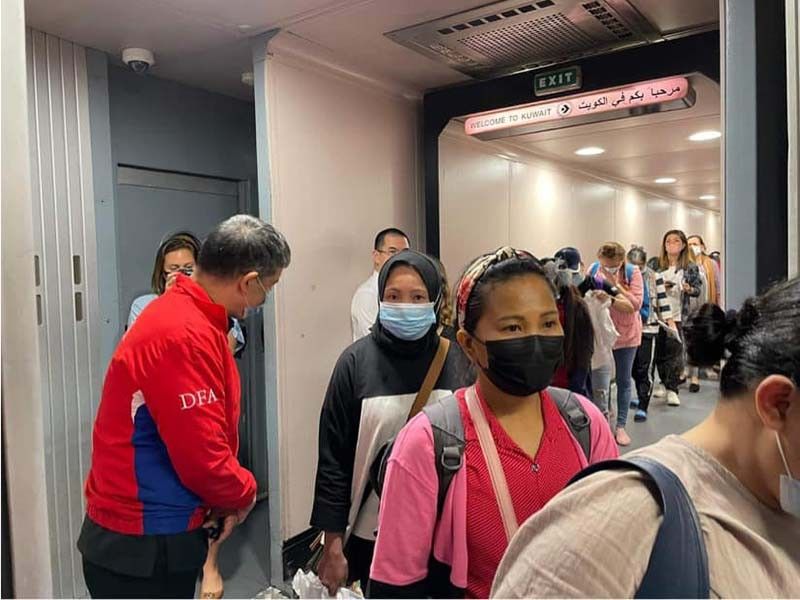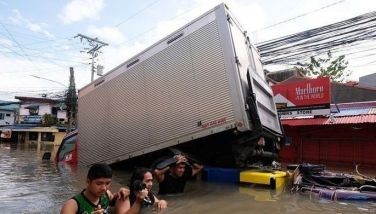Toll of Kuwait's visa suspension: At least 130 OFWs offloaded, sent back daily

MANILA, Philippines — The Kuwaiti government's suspension on issuing new visas to Filipinos has meant that at least 130 overseas Filipinos a day have had their deployment plans derailed, according to a migrant workers' group.
Migrante International noted that this is one of the consequences of the country’s unofficial labor export policy that it said “makes [the country] dependent on the changing demands of other countries, some of whom resent efforts to protect OFWs’ rights.”
The Kuwaiti government did not provide a specific reason for the visa suspension announced last week, saying only that the Philippines had violated a labor agreement signed in 2018. However, the Department of Foreign Affairs has said that one of the reasons may be Manila putting up shelters for runaway and distressed OFWs in the Gulf state.
DFA Undersecretary for Migrant Workers Eduardo de Vega in a televised interview on Tuesday said the suspension may be Kuwait’s “bargaining chip” in this week’s scheduled exploratory talks to improve the bilateral labor agreement.
The Philippines in February suspended the deployment of household workers to Kuwait following the killing of Jullebee Ranara a month before. Kuwait's visa suspension affects all new deployments, including migrant Filipino workers in other sectors.
“Honestly, if that’s their issue then it would be non-negotiable for the Philippines because we will not close down our shelters there since it is required under our law,” De Vega told Super Radyo DzBB in Filipino on Monday evening.
Migrante said 78 OFWs bound for Kuwait were repatriated or brought back to the Philippines, adding that many have also been offloaded from their flights.
The coalition is also calling on the Philippine government to provide assistance to the OFWs who were sent back home due to the visa suspension.
“We condemn the Kuwait government for sending back OFWs because it sees the Philippine government as abetting violations of labor agreements by providing shelters to distressed OFWs,” Migrante said.
“Domestic workers, who comprise a big chunk of OFWs in Kuwait, are most vulnerable to labor exploitation and sexual abuse and violence, especially in foreign lands.”
Philippine diplomats and officials from the Department of Migrant Workers and the Overseas Workers Welfare Administration were tasked to head to Kuwait to smoothen out the issue. They are expected to fly back home by the end of the week, De Vega said.
- Latest
- Trending

































